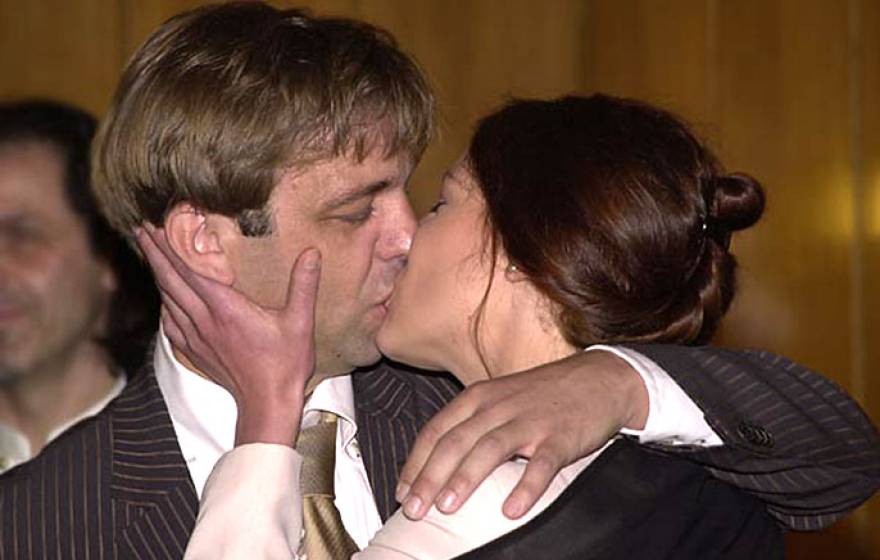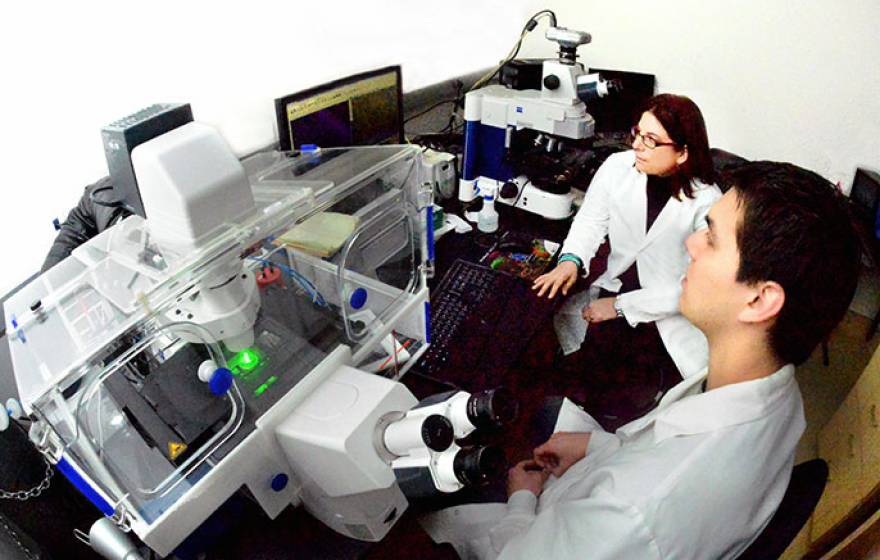UCLA |
Putting the brakes on concussion
Former Bruin, NFL players talk about their head injuries at event to educate parents, coaches and doctors on how to protect young football players.
Lawrence Livermore Lab |
Developing world's first neural device to restore memory
Device aims to help those robbed of memory by injury or illness.
UC Irvine |
Study finds that learning by repetition impairs recall of details
When learning, practice doesn’t always make perfect and nuanced aspects may fade away, neurobiologists find.
UC San Diego |
Cal-BRAIN kickstarts effort to map the brain
Statewide initiative led by UC San Diego signed into law.
UC Berkeley |
Your genes affect your betting behavior
Study finds that decisions in a simple competitive game are influenced by specific variants of dopamine regulators in a person’s brain.
UC Davis |
Engineers take part in 'WalkAgain' at World Cup
A paraplegic with the help of robotic exoskeleton will kick a ball during the opening ceremony of soccer tournament.
UCLA |
Poor health, lifestyle factors linked to memory complaints
Early complaints often precursors to significant decline in later life, UCLA/Gallup study says.
UC Newsroom |
Tackling tomorrow's health challenges
Nobel laureate Stanley Prusiner and other UC speakers help shape the debate at New York Times health conference.
UC San Diego |
How to erase a memory – and restore it
Researchers have erased and reactivated memories in rats, profoundly altering the animals’ reaction to past events; development may bolster Alzheimer's research.
UCLA |
Brain's response to sexual images linked to number of partners
Understanding the brain's reaction may help scientists create interventions to reduce sensitivity and, in turn, tendency toward risky sexual behavior.
UCLA |
Treating stroke improves during golden hour
Patients who receive clot-busting drug within first hour of symptoms are more likely to survive, preserve brain function and reduce disability.
UC Berkeley |
Commonly available blood-pressure drug prevents epilepsy after brain injury
Study in rats shows that a common hypertension drug can nearly eliminate the epilepsy that often follows severe head injury. Nearly one in five cases of epilepsy is the result of head trauma.





